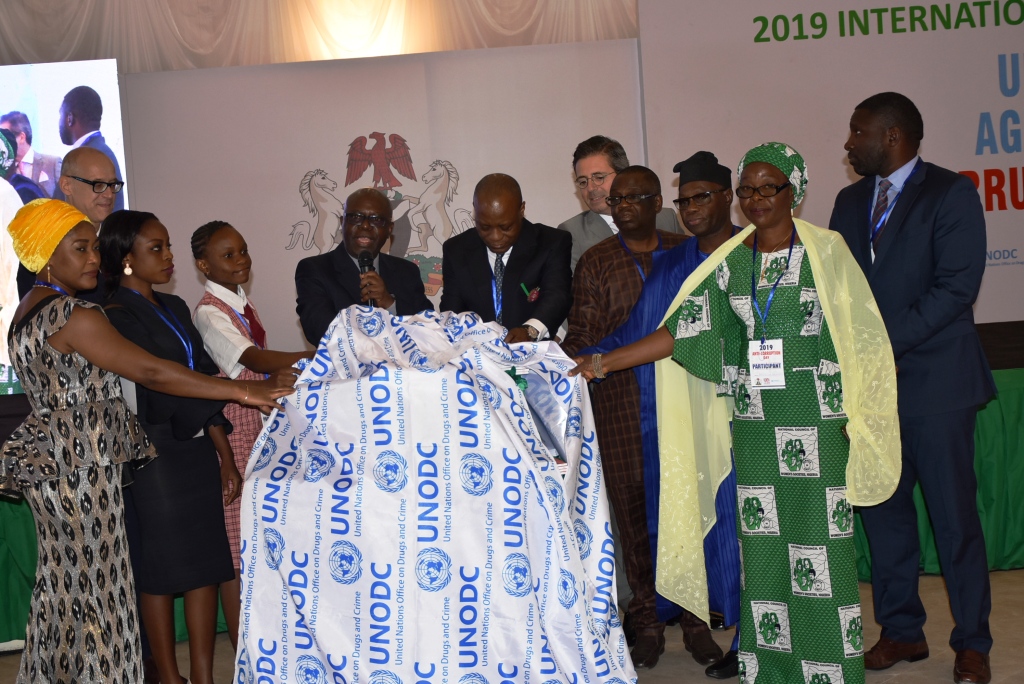
The Economic and Financial Crimes Commission, EFCC, on Friday, December 6, 2019, received commendations for its role in the fight against corruption in Nigeria.
The commendation was made at the launch of the 2nd Corruption Survey Report in Nigeria, a publication of the United Nations Office on Drugs and Crime, UNODC, in partnership with the Federal Government and the United Kingdom, UKAID, which held at the State House, Abuja, by Dr. Yemi Kale, Statistician-General, National Bureau of Statistics, NBS, who was represented by Yemi Adeniran.
While emphasizing the importance of using data to analyze key areas that need to be improved upon, in order to better the lives of citizens, Adeniran called for continuous monitoring of the survey.
“Corruption is the bane of our society,” Adeniran said, and charged Nigerians to shun all forms of bribery and corruption.
He also applauded the UNODC team, national steering committee and technical members, for the Survey that was carried out.
Describing the project of producing the Corruption Survey Report as a step in the right direction, Dr. Davidson Aminu, Director General, Publication and Documentation at the office of the National Orientation Agency, NOA, commended the organizers noting that, “this forum is timely and apt.”
“There is the need for stakeholders to join hands with the Federal Government in the fight against corruption,” he added.
An overview of the key results from the Report was given by Adeniran and Dr. Oliver Stolpe, Country Representative, UNODC Nigeria.
The event also included panel discussions on “Corruption in the Criminal Justice System”, “Corruption and Gender”, “Corruption and Youths” and “Corruption and Elections”.
Moderating the session on “Corruption and Gender”, Prof. Ladi Hamalai, Commandant, EFCC Academy, urged both men and women to see fighting corruption as a major responsibility.
“Countries that have more female legislators have less prevalence of corruption,” she averred.
Highlighting the role of women in the fight against corruption, she observed that women were “more compassionate” than men, “but men are more transactional than women and we should not discard this research evidence”.
“In Latin countries and Asia, women are used more and more in fighting corruption,” she added.
Dignitaries at the occasion include representatives from the EFCC, the Independent Corrupt Practices and Other Related Fraud Offences Commission, ICPC, different ministries, departments and agencies of government, members of the diplomatic corps, civil society organizations, youth groups and students.




